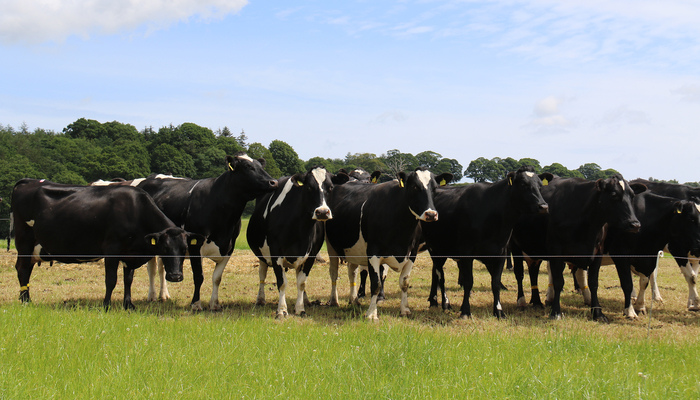As more milk buyers are advising against blanket dry cow therapy, dairy farmers are turning to teat sealants to reduce infection pressure against mastitis.
“The restrictions in the use of blanket dry cow therapy at drying off has resulted in many dairy farmers taking a selective approach to treating cows in the drying off period,” explains Alison Clark, Progiene Business Unit Manager.
Depending on the contract, administering antibiotic treatment as part of selective dry cow therapy may require veterinary support to stay in compliance. Anything deemed unsuitable for treatment will instead receive internal teat sealants only. However, some milk contracts do not allow the use of internal teat sealants.
“Rather than being inserted into the teat canal and potentially introducing new infections, T-HEXX DRY is administered as a dip, forming a physical barrier film on the teat and in the teat canal. This allows the sealant to act as the keratin plug, working as the cow’s first line of defence against pathogens. This is especially important in the first two weeks of the dry period when cows are most susceptible to mastitis,” says Ms Clark. “In addition to using T-HEXX DRY as part of a full drying off protocol in addition to antibiotic and internal teat sealants, if a milk contract does allow the use of an internal teat sealant, external teat sealants help to further prevent environmental pathogen infection and also act as fly control.”
Mitigating mastitis with best practice
When it comes to drying off protocols to prevent infection, Ms Clark recommends abrupt drying off once cows are producing 21kg of milk or less per day as it has been proven to reduce intramammary infections.
Regardless of which drying off products or methods a dairy farm plans to implement, hygiene should be made a top priority with teats being disinfected thoroughly before the drying off process is performed and that clean gloves are used for each animal to prevent the inadvertent spread or introduction of pathogens.
Seven days prior to calving, Ms Clark recommends cows are again dipped with an external teat sealant to help prevent any new infections from being picked up at that critical time.
The need for preventative practice
Along with compromising animal welfare, costs associated with mastitis carry a huge financial burden. Reports show mastitis costs the UK dairy industry £144 million each year, with the average case costing £200. Currently, the national average is 40 cases of mastitis per 100 cows – that’s a total cost of £8,000 per year.
“Mastitis has a huge economic impact on dairy farms. Associated costs are due to a decrease in milk yields and fertility, extra labour, treatments, penalties for high somatic cell counts and the dumping of milk due to antibiotic usage. It can also increase replacement and culling costs since infection will affect yield for future lactations,” explains Ms Clark. “However, by taking a preventative approach and adopting best drying off practice, dairy producers can reduce infection pressure to help mitigate these issues on their farms.”


